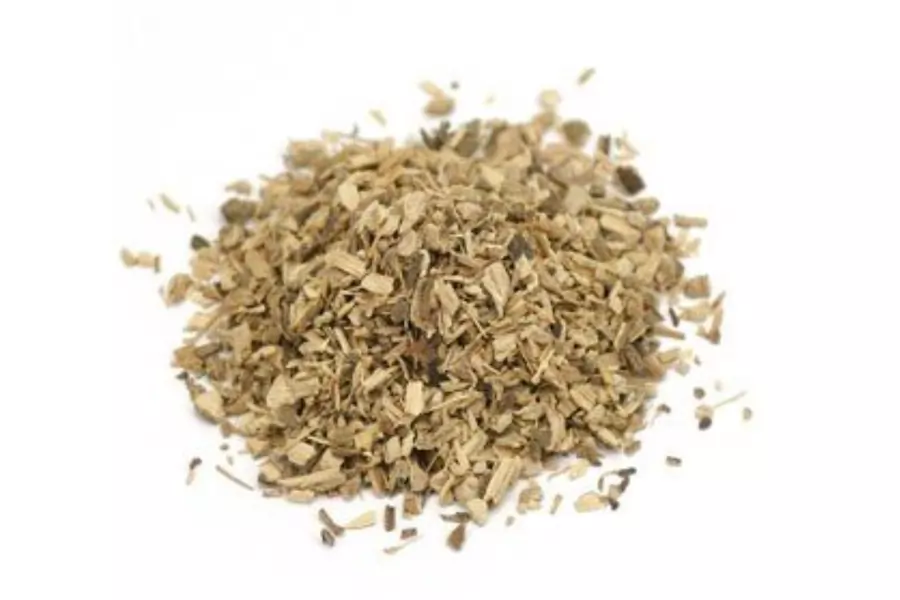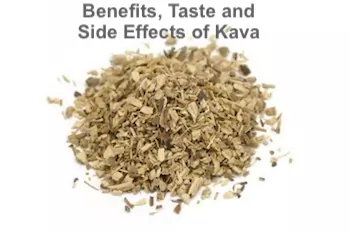Are you a kava tea drinker? Or are you thinking of starting to drink kava tea? Or perhaps just thinking “what is Kava tea”?
If the answer is yes to any of the above, then this article will help you understand everything about kava tea that you need to know.
We’re going through the benefits, how it tastes and the effects it can produce. But let’s start off with a quick summary to give you an overview…
Kava tea is a herbal tea made from the Piper methysticum (Kava plant). It’s offered and drank at social occasions, to celebrate events, and to welcome guests. It is legal in the US but not Canada. Kava tea benefits can include calmness, stress release, drowsiness, and aiding sleep issues.
For tea consumed in order to calm the nerves and invoke restful peace, you might also want to consider Valerian tea or chamomile tea.
Kava tea originated from the islands of the pacific-ocean; Polynesia, Melanesia, and Micronesia in the 1700s.
Here, cultures have been drinking kava tea for more than 2,000 years. Some people believe that it was discovered by the Swedish botanist Daniel Scholander and artist Sydney Parkinson.
Forster aptly was the first who offered greater detail around this and so named the kava plant “Piper Mathysticum”, which means “intoxicating pepper”.
What is kava tea?
Kava tea is a popular social beverage consumed to celebrate important social events or to welcome guests. It is a traditional drink from ancient times and is considered a safe and enjoyable beverage.
Also, Kava tea is commonly used as a remedy to treat stress or anxiety and to promote relaxation.
Kava tea is from the plant named “Piper methysticum”. The word kava is derived from the Polynesian word ‘awa’, which means ‘bitter’.
The root of this plant contains kavalactones, which help reduce anxiety.

To try kava tea, I’d recommend going for this quality Kava tea. Just put them into your tea infuser as you would with normal loose leaf tea.
How does kava tea taste?
kava tea is an acquired taste. Many people do not like the taste of kava, although they like the effects, and the relaxed way it can make them feel.
Traditionally prepared kava can take on a “muddy water” appearance which leads to a very earthy flavor. Still, some people love to drink kava tea in spite of its less than appetizing flavor, simply because its relaxation effects are fairly strong.
What can you add with kava?
Kava tea is easy to prepare. If you don’t like the taste of kava, you can easily disguise this by adding flavors just brewed alongside the Kava in hot water.
Those who wish to change the taste of kava tea can add an amount of cold water to tone down the taste.
People take kava mostly in a ratio of 1:10 or 1:15, so that’s 0.035 oz (1 gram) kava powder to 0.33 to 0.5 fl oz (10 to 15 ml) of water according to their preference. Two cups of cold water are enough to help diminish the taste of kava.
- If you want a better taste or flavor, you can add all types of milk to it, including almond milk, coconut milk, oak milk, and cow milk.
- You can also add coconut oil or a pinch of lecithin which may help to draw out the fat-soluble kavalactones.
- You can even mix it with any soft drink or juices like pineapple or papaya juice.
- Don’t mix alcohol with kava.
Benefits of kava tea
- A common benefit of Kava tea is to reduce anxiety. It is a natural alternative to anti-anxiety medication. It protects neurons from damage. Tea is the most common method and is readily available.
- People drink kava tea to help get rid of stress, restlessness, and sleeping problems like insomnia.
- Kava tea also relaxes your muscles, makes you feel calm.
- When it comes to alcohol, Kava is a better alternative or healthier than alcohol. It impacts the body somewhat like alcohol in that it makes you feel relaxed, clear, and happy.
- Kava has also been used in making herbal medicines for a long time. Kava tea is a herbal tea. And this popular herbal remedy is used to relieve pain, ease stress or anxiety, prevent seizures and boost sleep.
- If you are facing insomnia (sleeplessness), kava tea can improve your sleep. It’s a better option compared to a placebo. Kava tea promotes deep sleep without affecting REM sleep or mental sharpness.
- Studies also suggest that kavalactones may protect the neuron from damage and reduce pain sensation in the body.
Several studies and experiments were demonstrated for confirming the evidence around the benefits of kava.
Cigarettes can be a major cause of bladder cancer. But on the pacific island despite high smoking rates, the rate of cancer patients is low.
Scientists have yet to carry out further research on this, so a lot remains to be studied in this area.
How does kava tea make you feel?
What is Kava tea in terms of the side effects? Well, the extent of effects from kava tea largely depends on the amount of the dosage or time duration as well.
In smaller doses, you can usually experience the feeling of well-being, muscle relaxation, mild euphoria, and sound sleep.
It can make you a little tired but probably not enough to affect your driving ability. However, it’s advisable to refrain from driving after drinking Kava tea.
A heavy dose or long-term use (more than three months) can cause a rash, headaches, or eye irritation.
These problems tend to dissipate with time after you stop taking the kava. It occurs due to the kavalactones compound present in the roots.
Kava tea side effects
Discussion on the side effects of kava tea is always controversial, and this article is not designed to provide medical advice.
These are the effects of Kava tea that I have gathered.
- If you consume kava for a short period, you will likely experience fewer serious side effects. Like drowsiness, mouth numbness, rash, headache, indigestion, and visual disturbance.
- Long-term usage of Kava tea can lead to a range of health problems such as weight loss, liver problems, nutrition deficiency, or apathy.
- Kava tea should not overly affect the liver, but if you have prior liver problems, it could cause liver toxicity. Even long-term use of kava can damage your liver. So, people with liver diseases should avoid kava or kava tea.
- Kava may interfere in blood clotting. It is recommended that you should avoid kava before or after any type of surgery.
- Pregnant women or nursing mothers should avoid kava. Researchers say that kava can be transmitted to breastmilk. Again, consult your doctor.
- Kava can worsen other diseases like hypertension, low blood pressure Parkinson’s disease, or kidney disease.
- Taking kava tea with some medications can increase the side effects. Before taking kava with medicine, you should consult your doctors.
Is kava tea safe to drink?
People have been drinking kava tea for a long time, and it is largely considered a safe and enjoyable drink.
Short-term use of kava is less likely to cause any harm. But if you have prior health issues, including yellow skin, jaundice, dark urine, and fatigue, then stop taking kava tea.
In short, for most people, you should consult a doctor before taking kava or drinking kava tea.
If you drink kava in large quantities, you may face dry or scaly skin and nausea. Also, too much consumption of kava can lead to impotence and weakness.
Kava is also taken in the form of a capsule, powder, or liquid form.
It is said that kava can cause liver damage. In the early 2000s, cases of liver damage or even deaths were reported.
Due to these reports, kava is currently banned in Canada. Kava was also withdrawn from the markets in many countries in Europe and Canada following the cases.
After some time, most of the countries allowed kava to return to the market. Kava has never been banned in the U.S market.
Scientists are unsure as to how kava might damage the liver. They are still fully researching safe ways to use kava.
Can you drink Kava tea every day?
You can drink a small cup of kava tea every day. However, experts recommend that taking kava amounts of more than 250 milligrams per day can damage your liver.
You ideally need to limit the use of kava and should not continue for more than three months.
After drinking Kava tea you should drive or operate machinery.
In the form of a capsule, the doses range varies between 50milligrams to 100milligrams. Although it helps in reducing anxiety, it could cause chronic diseases, including skin reaction, enlarged pupils, or facial puffiness.
Do you need to be 21 years old to drink kava tea?
Kava is not regulated by any state or federal law. That means there are no rules or regulations regarding age.
But it is advisable that you only serve kava tea to people 18 years or older – unless their parents or guardian are present and provide permission.
Drinking kava tea beyond 18 is totally up to each individual, there is no U.S law against it.
Can you get drunk on kava tea?
Kava and alcohol are both processed through the liver. Kava is far better than alcohol, in that you may feel a slight “buzz”, the same as when you drink alcohol, but it is not usually that “high.” However, you may also feel a mild morning hangover.
Also, it varies from person to person. Some may feel euphoria or an increased level of sociability, but this is considered infrequent.
Evidence suggests that at an early age people who don’t drink alcohol, drink kava instead. When compared to alcohol, drinking kava is the healthier choice.
Does Kava tea cause drowsiness?
Kava can potentially cause drowsiness. Kava roots contain a compound called kavalactones. These kavalactones slow down the speed of transferring messages through the nervous system of the body – also, drowsiness could be exacerbated by whatever else you choose to mix with kava.
If you drink kava tea along with sedatives, you will likely experience too much drowsiness or excess sleep. So sedatives are best avoided. Don’t drink kava and alcohol simultaneously either; be on the safe side …because it may cause drowsiness or insomnia.
Scientists have been researching kava tea for a long time. And despite a fair amount of research having been done on the use of kava for reducing anxiety. Still, some studies are due on the other conditions for the use of kava and kava tea.
Due to the lack of research other than on anxiety, limited evidence has yet to prove that kava is helpful for any other conditions.
Don’t take my word for it. See for yourself …why not and try Kava tea.
More Tea help….
I hope this article answered the question of what is kava tea. As mentioned previously, this article, and indeed Teahow as a whole is not able to dispense medical advice. I’d advise that you consult with your doctor before drinking Kava tea.
If you’re becoming a tea drinker, then you might want to consider my tea course. It’s the fast-track method to being the tea connoisseur in your family or circle of friends. Here’s some further information.
